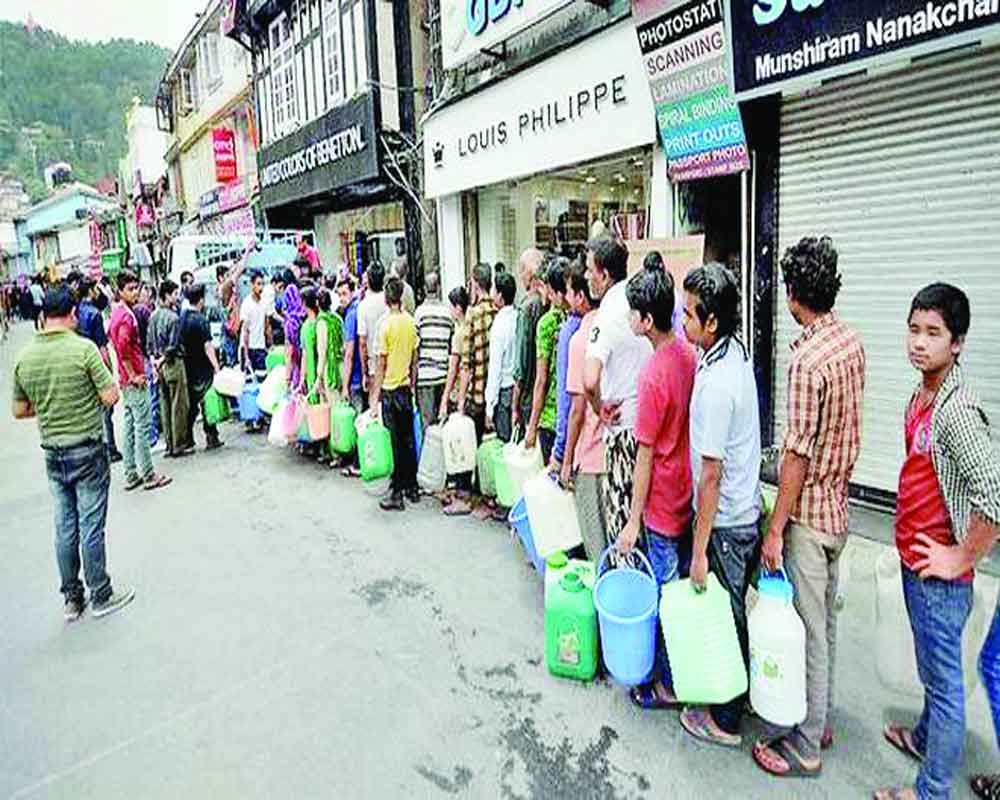As tourists make a beeline for mountain retreats, the hill economy is collapsing and resources are being stretched. Is it time to end overtourism, asks Team Viva
Afive-hour traffic jam in Dalhousie; hotels displaying ‘full’ in red on travel booking websites; internet flooded with pictures of tourists spending the night under the open sky; and residents left without adequate resources due to overtourism — incidents like these have become commonplace this summer as the temperatures shoot up. But if one thinks about it, even Everest hasn’t been spared the evils of tourism. Naturally, the hill stations being more accessible are easier prey.
With weather forecasts unable to keep pace with the rising temperature, people are scrambling to find an escape from the scorching heat and sweaty metro rides in the city. And while tourists flock to the Himalayas and other hill stations to find refuge, these places have descended into chaos. While tourists come here to absorb the serenity of the place, they become victims of the travel bug. In short, the hill economy is stressed and bursting at seams.
Congested routes
Nainital can accommodate 2,000 four-wheelers but more than 4,000 vehicles are pouring into the city on a daily basis. To counter this, the police put up “Nainital Houseful” flexi-banners at Bhimtal Chauraha, Kathgodam Police Chowki Crossing and Nariman Square, to discourage tourist arrivals, but to no avail.
Following this, the Nainital administration decided to restrict the entry of tourists in the hill station if the parking lots are full and only let them in when the traffic has cleared out.
Shimla, which has witnessed a 6.2 per cent rise in tourist footfalls over the past three years. This year it has seen the highest space crunch as temperatures hit more than 40 degrees in the surrounding areas of Delhi NCR, Punjab and Haryana.
Ravi Kumar, general manager at RS Sarovar Portico, Palampur, says, “The whole of Punjab, Mumbai and Delhi is rushing to Dharamshala to get some relief from the heat. However, this has resulted in massive over-tourism and traffic on the roads to such an extent that it is taking two hours to travel over seven kilometres. And once you reach there, where will you put up?”
A major factor that comes to the fore is the affordability of personal conveyance, which in turn, leads to the space crunch. “Earlier, people travelled in buses or trains, but now they have switched to their own cars. This leads to congestion. Parking space is a major challenge. While the Kullu-Manali highway is getting broadened, the hill station itself has no such provision for it,” says Sharad Sharma, hotelier, Apple Country Gulmarg Resort, Manali.
He adds that since Manali doesn’t have enough parking space, tourists have no choice but to park their vehicles on the road, “This in turn, results in long cars queues which prolongs the hours on the road. The holidays are turning into a tedious exercise rather than an enjoyable one.”
Pollution overload
Following the vehicle rush, the rise in pollution level each year calls for an inspection of human-driven global warming. Are our brains wired to ignore sustainable development options which would halt climatic changes and offer some respite from the choking heat?
Sandeep Sharma, owner of Shivirama Hotel in Bir, Himachal Pradesh, says, “When people flock to the hills in large numbers, it not only leads to overtourism but also uneducated tourism. Even when they see a place is overbooked, they still keep checking the availability of accommodations rather than wait for some days. Some even reach here without bookings and are fine with spending the night in the open and littering around.”
Sanjay Austa, owner of the Meena Bagh Resorts, who has two eco-friendly resorts in Himachal one each in Shimla and Ratnari, says, “The hill station is choking up because it was built only for 30,000 people but there are 2,00,000 people living here currently. And with tourists adding to the place’s population constantly, it has made it difficult even for its residents.”
Water scarcity
Along with the tourists, the residents in Himachal Pradesh and Uttarakhand are also saddled with the baggage that overtourism brings including a pressure on resources.
Prachi Raturi Mishra, a resident of Landour in Uttarakhand, shares her experience of acute water shortage in the area. “Due to overbooked hotels and roads, it’s hard for the kids to reach their schools in the morning. Water is diverted to hotels, which leaves the local residents without water. I’ve never seen this happen,” she says and goes on to add that in order to save water, the two children in the house bathe on alternative days.
Deepak Sharma, owner of Sim Sim Hotel in Himachal Pradesh, says, “The steep rise in the number of tourists is a major concern. We are booking more than our capacity and hence, do not have adequate resources, especially water. The authorities should have planned tourism in an efficient and systematic manner.”
Austa further highlights the knee jerk reaction of the authorities and says, “The government has come up with a band aid measure to curb the water scarcity issue by pumping water from a rivulet. This cannot be a long term solution or a sustainable one as it is depleting water. Rainwater harvesting, which government is not enforcing at all, is what needs to be done. This in turn is leading to resource crunch.” The situation right now in the hills demands drastic changes rather than the illusion of the same. Is it time to have a sustainable hill development policy?


























